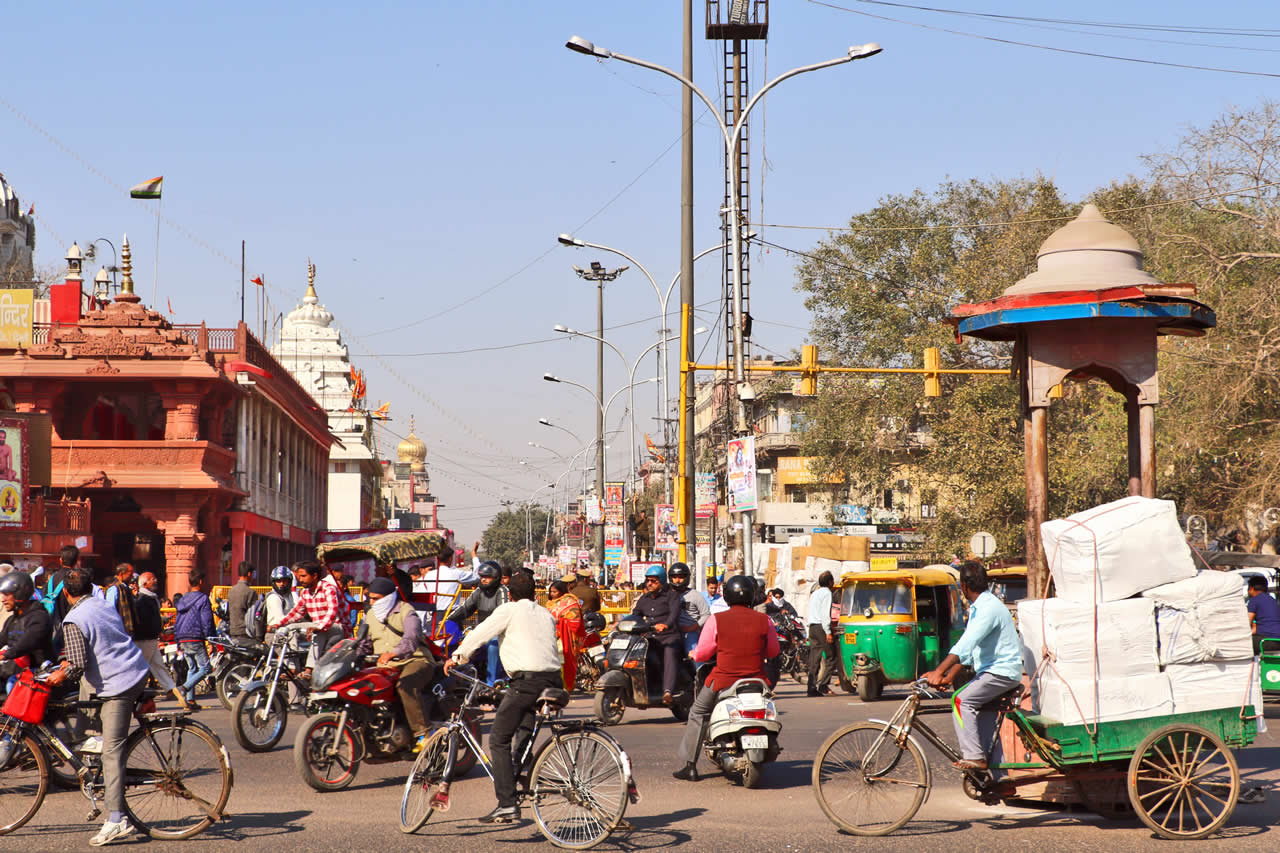A while ago, we posted a story about Beachy Head Road in Eastbourne being recycled. The process involved skimming the existing surface off, reprocessing it and laying it back down again. Amongst other things, this saves on the cost of new raw materials and consequently saves money.
There are derivatives of this idea happening around the world, where plastic waste is now mixed into the tar used for the new road surface before it is laid down.
One such example came from India, where Jambulingam Street in Nungambakkam, Chennai first came to the attention of the recycling world by being one of the first streets to undergo the process.
Increased durability of roads made from plastic
The road was remade back in 2002 using a cheap, polymer glue made from recycled, shredded plastic. Unlike most roads, this one has fared remarkably well and has withstood years of monsoon floods, scorching hot weather and the daily grind of trucks buses, pedestrians and rickshaws hammering away it relentlessly every day. Despite this daily pounding, the road hasn’t developed the usual cracks and potholes of its predecessor.
The process of using plastic as an ingredient for new roads isn’t new. It was conceived in India at the beginning of the new century as a way to deal with the ever-increasing problem of plastic waste material not being recycled. Since then, there’s now an astonishing 21,00 miles of “plastic roads” up and down the country, with the southern state of Tamil Nadu accounting for nearly half of them. They are predominantly rural roads although some are also in built-up cities such as Chennai and Mumbai. The new type of polymer road has gained support from the scientific community as well as government bodies such as the Central Pollution Control Board in India.
Advantages of using plastic
A significant advantage for this new type of road is the fact that certain types of plastic products can be used that would otherwise be sent to landfill. Items such as plastic bags, food packaging and plastic foam that can’t be recycled using conventional methods, can now be a benefit rather than a hindrance to the local population. It was not uncommon for the air in Delhi to be filled with toxic smoke due to contaminants from plastic-fueled street bonfires. This led to Delhi being dubbed the “toxic pollutant punchbowl” of India.
Lack of raw materials
Despite Chennai leading the way of this modern road-building method, the majority of roads in India are not built using recycled plastic polymer. One of the problems faced is the lack of available resources; there simply isn’t enough old plastic to go around. It was hoped that by offering incentives to the community to collect the rubbish needed, enough could be gathered on an ongoing basis. At one stage in 2012, a gram of gold was offered to residents of one particular town if they were able to collect enough old plastic bags to meet the required quota.
There was also speculation that some of the wealthy road builders in India didn’t like this idea as they were already receiving plenty of business from the government for repairing the existing roads (filling in potholes and ongoing repairs etc.). The prospect of longer-lasting, more durable roads would lead to an obvious dip in long term profits.
Back on the agenda
However, at the end of 2015 following major floods in the area, plastic roads had found their way back on the agenda as the mayor of Chennai announced that the project was being rekindled after huge damage to Chennai’s infrastructure. In fact, last November heralded an announcement by the Indian government that plastic roads would now be the default method of construction for most city streets. It’s no surprise that plastic is now such a focal point in everyone’s minds due to the proven issues the world is having with it. Aside from using plastic waste for roads, people are now beginning to also use it in other areas of construction such as making bricks from used plastic.
In India, urban areas with a population of more than half a million people will now see roads constructed with plastic waste. The prime minister, Narendra Modi, has been vocal in his support of the project as part of his crusade to make “Swachh Bharat” (meaning ‘Clean India’) a reality.
A solution to India’s landfill problems?
Fuelling the incentive to build more roads using plastic and other waste materials, is the growing problem of India’s landfill sites, which are now bursting at the seams. In order to offset some of the expense and lack of resources, the government is proposing to use huge amounts of unsorted landfill waste to make the base and embankments of the new roads. Indias roads minister Nitin Gadkari is quoted in an interview as saying:
“Delhi will get rid of these mounds and we will get the material for laying base with little expense”.
Environment concerns
Whilst this all seems like a fabulous idea, there are some serious concerns about the long-term effects that this method may create. There is speculation that if the roads are poorly built or simply become too worn, it could lead to devastating consequences for the environment. Tiny plastic fragments often referred to as microplastics could easily build up in the soil as they have already done in the oceans around the world and more alarmingly, in local water supplies too, causing a myriad of issues. Aside from the obvious immediate health implications, there is also the possibility that the cumulative effect of more plastic finding its way into the soil will hamper the growth of crops by upsetting the soil’s chemical balance.
